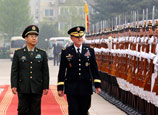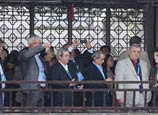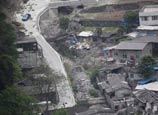
According to the Ministry of Health, in 2011, the inoculation rate of children under the National Immunization Program was more than 90 percent.
Optional vaccines, such as the common influenza vaccine, are less successful, especially in the comparatively less-developed areas and among low-income groups, experts say.
"There are no statistics, but optional vaccination is much less popular with parents," says Zhang Weina, a vaccination specialist with Beijing Tongren Hospital.
In areas where medical authorities promote the benefits of vaccines, the inoculation rate of optional vaccines is much higher than areas where there is less effort to educate people about vaccines, Zhang notes.
Better economic conditions also contribute to higher inoculation rates, and vice versa, Zhang adds.
Zhao Lu'na, a migrant worker in Beijing and mother to a 6-year-old son, admits that optional immunization is too expensive. She and her husband make only a few thousand yuan per month, but optional vaccines can cost from about 100 ($16.20) to nearly 1,000 yuan.
"I believe vaccination protects the child, but we cannot afford optional vaccines," Zhao says.
In her neighborhood, where there are mainly migrant residents, most children do not get the extra inoculations because people think they cost too much and they are not a necessity, Zhao adds.


















 Local villagers climb mountains to get relief supplies
Local villagers climb mountains to get relief supplies


![]()
